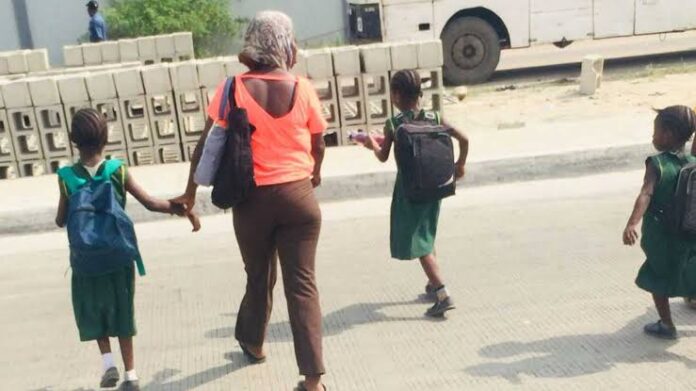As Nigeria’s inflation continues to rise, parents across the country are finding it increasingly difficult to afford the escalating cost of education. School fees have surged dramatically, leaving many families struggling to keep up with the financial demands of sending their children to school.

For Emeka Udeagu, a father with children in both secondary and primary schools, the burden has become overwhelming. His eldest child’s school fees have skyrocketed from ₦700,000 to ₦1.2 million, while his younger child’s fees have doubled from ₦200,000 to ₦400,000. Despite these sharp increases, Udeagu’s income has remained stagnant, forcing him to make significant sacrifices just to ensure his children can continue their education.
This situation is not unique to Udeagu. Across Nigeria, many parents are facing similar challenges as inflation erodes their purchasing power. The National Bureau of Statistics (NBS) reported that while the overall inflation rate rose to 34.19% in July 2024, the inflation rate for the education sector actually fell to 16.9% from a peak of 21.4% in September 2023. However, these statistics do little to comfort parents who are grappling with the reality of rising school fees as a new school term approaches.
The financial strain is pushing parents like Udeagu to cut back on household expenses to prioritize their children’s education. “There is no ostentation in my house,” Udeagu explained. “We’ve stopped spending on unnecessary pleasures like watching movies. My children now use laptops for their studies instead of watching TV. We are cutting back on everything to afford their education.”
Adding to the frustration is the perception that some schools are insensitive to the financial struggles of parents. Udeagu criticized his children’s school for upgrading its campuses to a “premium brand,” which he believes contributed to the steep increase in fees. “They added ₦300,000 to the fees for the so-called upgrade. This was completely unnecessary, especially at a time when many families are struggling,” he said.
Other parents share similar sentiments. Mrs. Rose Ofor, whose child is in junior secondary school, has decided to withdraw her child from their current school due to rising costs. “The fee for my child increased from ₦600,000 to ₦970,000. I will be withdrawing them from the school because I can’t afford it. Not because I can’t pay it, but I have other kids and other things to cater to,” she explained. “It’s better they go to a school where the fees are easier on me, without burden or stress.”
The broader economic situation in Nigeria is exacerbating these challenges. The removal of the fuel subsidy earlier this year has led to increased transportation costs, further straining household budgets. A teacher, Mrs. Flora Ikpeazu, highlighted how these rising costs are impacting both parents and schools. “The inflation has affected the education system because some parents that we know are well-to-do are now thinking of going to another place where they can get cheaper school fees,” she noted. The cost of textbooks and uniforms has also risen sharply, with parents paying significantly more for essential educational materials.
The increasing school fees are part of a broader economic challenge that is placing a heavy burden on Nigerian families. With inflation high and wages stagnant, many parents are being forced to make difficult decisions about their children’s education. This situation underscores the urgent need for systemic solutions to ease the financial strain on parents and ensure that children have access to quality education without placing undue pressure on household finances.
As Nigeria continues to find a way through the economic turbulence, the struggle to afford rising school fees remains a significant concern for many families, highlighting the need for more responsive and equitable measures to support education in the country.




